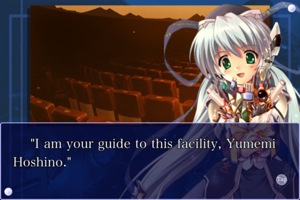 A while ago I wrote about why you, my fellow otaku readers, need to get excited about
A while ago I wrote about why you, my fellow otaku readers, need to get excited about the iPad modern tablet computers. (I’ll even extend this to all tablet-type devices in general. I’ve nothing against you Android or (even) Windows 8/Windows RT/whatever the hell it’s called today folks.) And just about all of my predictions have come true. Besides iTunes, there are a plethora of ways to enjoy streaming anime videos, thanks to fine apps from the likes of Crunchyroll, Hulu, Crackle, Anime Network, FUNimation and probably a few more I’ve forgotten. And if you’d rather play back video files that you already have (either on your computer or somewhere on your home network) you can do that too. For you manga addicts, one of the biggest names in the field, Viz Media, has put out a (by all accounts) superb iOS app, and other companies are starting to take notice and follow suit. Some publishers are even going so far as to move exclusively to digital. And, while I have yet to see anybody sitting in Artists Alley drawing commissioned works on their tablet, more and more artists are starting to experiment with creating art on tablets. Even our favorite convention guide publisher Guidebook recently released an awesome update to their app that adds iPad compatibility.
But there is one area where the iPad could revolutionize an otaku’s life (or at least make it that much cooler) that I forgot to mention in my original article, mostly because I wasn’t really into it at the time I wrote my original post: visual novels, dating sims, raising sims and similar genres. It’s true that tablets (and the iPad in particular) are attracting plenty of attention from game developers. The problem arises when a developer tries to shoehorn a game onto the device that it isn’t suited for. Because most games are designed for PCs and consoles, where more traditional input methods are available (keyboards, game controllers, etc.), ports made for iPads and other tablets generally don’t work out very well. First person shooters are especially problematic; while some FPS ports manage to pull it off — barely — they still feel awkward and hard to control. (The one exception to this is ports of some DS games; there have been a few notable successes, including Phoenix Wright: Ace Attorney, Ghost Trick: Phantom Detective and Scribblenauts.) However, a visual novel (from here on out I will use “visual novel” I mean all visual novel/dating sim/raising sim/etc. type games) would work quite well on a tablet, since the simple controls are ideally suited for a touchscreen; also the large, beautiful screens on today’s tablets would really show off the awesome artwork of these games.
Unfortunately, until recently, there has been a noticeable lack of visual novel type games in the various app stores. We’re finally starting to see titles from this genre appear, but many are fraught with translation errors, and most are fairly unknown works and of dubious quality. (Although recently iOS ports of Kira Kira and Higurashi When They Cry have surfaced) But a new player has entered the stage, and this one came as sort of a shocker, for it is none other than the much-beloved visual novel juggernaut Key, makers of Kanon, Clannad and Air. Fans all across the globe have been clamoring for native-language ports of these titles, especially after the successes of their anime counterparts; however Key has been entirely uncooperative on this point. (Rumors are that at one point there was talk of licensing one of their titles, but they allegedly demanded astronomically high licensing fees, so it didn’t go forward.)
Unfortunately, we still have yet to get a port of any of their better-known/top-shelf titles. (Sorry to disappoint you) What we did get, however, is a port of Planetarian – Dream of Little Star. It might not be as well known as Key’s other titles (I hadn’t heard of it before now); also, rather than a visual novel, it is a kinetic novel; but it seems to be just as adored by fans.
The story takes place in a post-apocalyptic world, 30 years after most of humanity was wiped out by a brutal, devastating war. The story is experienced from the point of view of the “Junk Hunter,” a bitter, weary individual who makes his living rummaging through the remains of civilizations and scavenging any useful parts or technology. One day, while exploring a “domed city,” said to be one of the most dangerous places, he stumbles upon a planetarium, and is promptly greeted by its chatty and slightly malfunctioning robotic greeter, Yumemi Hoshino, who sincerely believes that he is her first customer in thirty years. She invites him on a “voyage to the stars,” but the Planetarium projector malfunctions. After a succession of disjointed conversations, the Junk Hunter grudgingly agrees to fix it.
It was written by Yuichi Suzumoto, who also worked on other Key titles including Air and Clannad. Artwork and mechanic design was done by Eiji Komatsu, interesting in that there was no involvement from Key’s predominant artist at the time (and the one who worked on all Key titles up until Planetarian), Itaru Hinoue. Music and sound were composed and arranged by Key’s signature composers Magome Togoshi and Shinji Orito. Originally released in November of 2004, it was later ported to PlayStation 2, PlayStation Portable and various mobile devices, and achieved sales of over 50,000.
Planetarian – Dream of Little Star is available for $3.99 on the iOS app store. Go grab it today! Also check below the cut for some intro/promo videos showing off the game. (Unfortunately the intro clip doesn’t appear to include sound; the actual game does contain sound and is fully voiced.)
Now can we finally get ports of some of your other stuff, Key? Please? PC or iPad or (insert other tablet), I don’t care. Please?!

![[Play Now!]](http://media.otakunopodcast.com/images/PlayNow.jpg)
![[View our eBay Auctions]](http://bayfeeds.com/images/Right_Now_108x45.gif)
















Leave a Reply